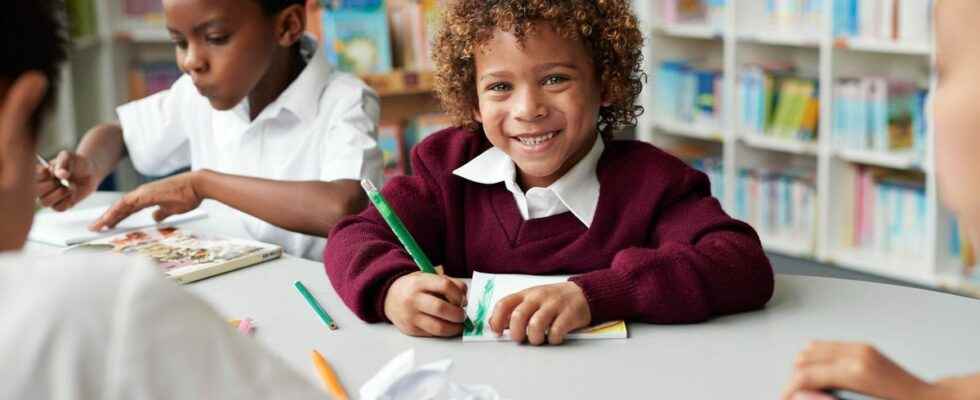Published on
Updated
Reading 2 mins.
The placement of primary school pupils in the classroom would play a decisive role in their friendly relations, according to a study.
A new American study conducted by researchers in the psychology of Florida Atlantic University showed that classroom seating has a significant impact on children’s friendships. The results were published in the journal Frontiers in Psychology.
235 primary school students (129 boys, 106 girls), aged 8 to 11, named their friends in the class twice, 13 or 14 weeks apart. According to the study, students who sat next to or close to each other were more likely to be friends with each other than those who sat elsewhere in the classroom, even if they had formed a friendship before.
The importance of proximity
“The students in our study spent most of the day with the same 15 or so peers. By the middle of the school year, they knew everyone else in their class,” says the study’s lead author and professor of psychology. “Yet when seating assignments changed, new seatmates were likely to become new friends. Apparently, closeness transcends familiarity by providing new opportunities for the exchanges that form the basis of a friendship”.
The study reveals that interactions between students also take place during lunch, recess or free time activities. But according to the researchers, the classroom is the best place at school to build strong friendships, since children often have few other opportunities to meet friends outside of school. .
The results highlight “the power of closeness in forming friendships”finds the study.
The influence of teachers
In some primary school classes, the teachers decide where to place the students and therefore control the interactions.
“Overall, our findings highlight the enormous influence that teachers exert on children’s interpersonal lives. With great power comes great responsibility”said the lead author.
“We urge teachers to exercise their power wisely. We know that unintended social consequences can arise when adults interfere in children’s social lives”he concludes.
